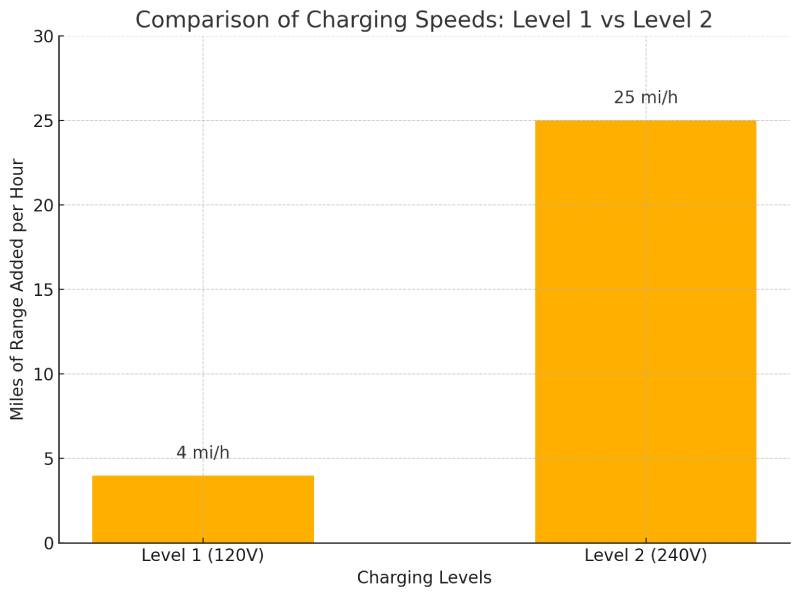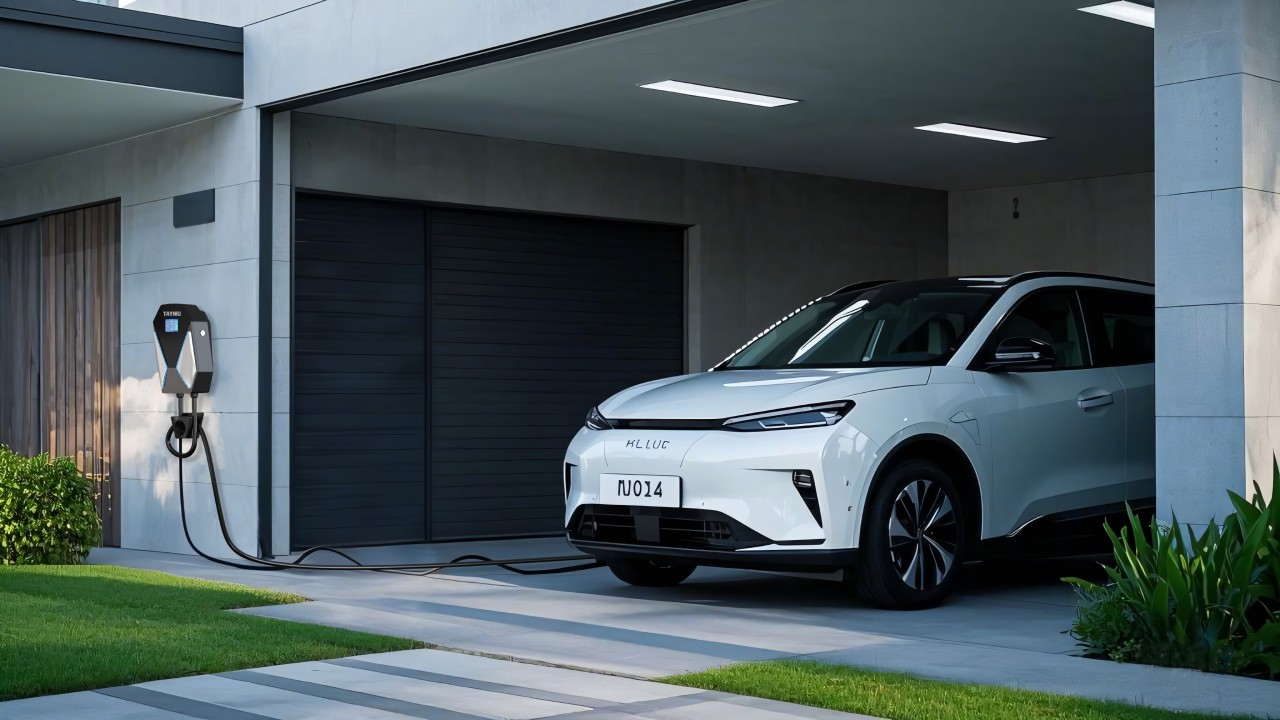Why Choose 240V for Charging Your EV at Home?
Electric vehicles (EVs) make up over 18% of global car sales as of 2023 [Source]. With this growing popularity, many EV owners are exploring practical home charging solutions. One of the most effective options is using a 240V outlet. This guide will explain how 240V EV chargers work, their benefits, and how to set one up at home.
What Is 240V Charging?
A 240V EV charger is classified as a Level 2 charging solution. It operates at 240 volts, delivering power much faster than the standard 120V outlet (Level 1). A Level 1 charger can take over 24 hours to fully charge an EV. In contrast, a 240V charger can do the same job in a few hours, depending on the battery size and charger capacity.
Level 2 charging is a popular choice for home use. It offers a faster charging speed while being cost-effective and easy to install. Unlike Level 3 (DC fast chargers), which require extensive infrastructure, Level 2 chargers can integrate into most residential setups. Overnight charging with Level 2 ensures your EV is fully charged and ready for the next day.

How Does 240V Charging Work?
A 240V EV charger delivers higher voltage and amperage to the EV battery, enabling quicker charging. Here’s what you’ll need:
- A 240V Outlet: This is typically a NEMA 14-50 or equivalent outlet designed for high power loads. For guidance, consult a licensed electrician or visit Tayniu’s charging resources.
- An EVSE (Electric Vehicle Supply Equipment): This device acts as the charger, connecting the outlet to your EV.
- A Compatible Circuit Breaker: Ensure your electrical panel can support the load, usually requiring a 40-amp breaker or higher.
Benefits of Using a 240V EV Charger
Switching to a 240V EV charger comes with several advantages:
| Feature | Level 1 (120V) | Level 2 (240V) |
|---|---|---|
| Charging Speed | Adds ~4 miles of range/hour | Adds ~25 miles of range/hour |
| Setup | Standard household outlet | Requires 240V outlet |
| Cost | Minimal | Moderate installation cost |
| Best Use | Emergency or light use | Daily and overnight use |
These differences make Level 2 charging a reliable and efficient option for most EV owners. Additional benefits include:
- Faster Charging: Reduce charging times from a full day to a few hours.
- Energy Efficiency: Level 2 chargers minimize energy loss compared to Level 1.
- Convenience: Perfect for overnight charging or quick top-ups.
- Compatibility: Works with nearly all modern EVs, including Tesla and Nissan Leaf.
Setting Up a 240V EV Charger at Home
Follow these steps to install a 240V EV charger at home:
- Assess Your Electrical System: Ensure your home’s electrical panel can handle the additional load. An electrician can help evaluate this.
- Install a 240V Outlet: Hire a professional to install the outlet safely and to code.
- Choose the Right Charger: Tayniu offers reliable chargers like the SmoothPro and Infinity Series, which are known for efficiency and durability.
- Test the Setup: Test the charger with your EV to confirm functionality once installed.
- Regular Maintenance: Periodically check the outlet and charger for wear and tear.
Common Questions About 240V Charging
Q1: How long does charging an EV with a 240V charger take?
A: Charging time depends on your EV’s battery size and the charger’s power output. Here’s a quick overview of popular models:
| EV Model | Battery Capacity | Charging Speed (7kW) | Estimated Time |
| Nissan Leaf | 40 kWh | ~25 miles/hour | ~6 hours |
| Tesla Model 3 | 60 kWh | ~25 miles/hour | ~8 hours |
| Chevrolet Bolt EV | 66 kWh | ~25 miles/hour | ~8.5 hours |
Q1: Is 240V charging safe?
A: Yes, provided a certified professional installed and maintained it. Modern 240V EV chargers feature built-in safety measures, such as overcurrent protection and weather resistance.
Q3: Can I use a 240V outlet for multiple EVs?
Yes, but additional equipment like a splitter or dual-port charger may be required.
Why Choose Tayniu for 240V EV Chargers?
Tayniu provides a range of premium 240V EV chargers designed to meet diverse user needs. Key features include:
- Durability: Built with IP65/IP66 ratings to endure tough conditions.
- Efficiency: Available in multiple power levels (3.5KW, 7kW, 11kW, 22kW).
- Compatibility: Supports global standards like Type1, Type2, and GB/T.
- Smart Features: Includes app-based scheduling and current regulation.
- Warranty and Support: Backed by robust warranties and exceptional customer service.
In conclusion, charging your EV with a 240V outlet is an efficient and practical choice. A 240V EV charger offers faster speeds, better convenience, and long-term cost savings. Ready to enhance your EV experience? Explore Tayniu’s 240V EV chargers today. Inquiry Now and simplify your charging routine.
Last Updated on January 20, 2025 by tayniu

